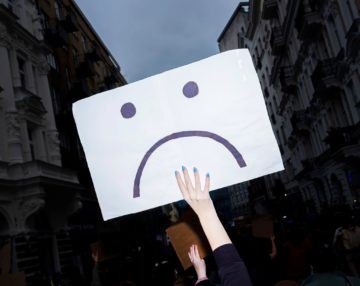David Brooks in The New York Times:
 Taylor Swift was quite the romantic when she burst on the scene in 2006. She sang about the ecstasies of young love and the heartbreak of it. But her mood has hardened as her star has risen. Her excellent new album, Midnights, plays upon a string of negative emotions — anxiety, restlessness, exhaustion and occasionally anger. “I don’t dress for women,” she sings at one point, “I don’t dress for men/Lately I’ve been dressing for revenge.”
Taylor Swift was quite the romantic when she burst on the scene in 2006. She sang about the ecstasies of young love and the heartbreak of it. But her mood has hardened as her star has risen. Her excellent new album, Midnights, plays upon a string of negative emotions — anxiety, restlessness, exhaustion and occasionally anger. “I don’t dress for women,” she sings at one point, “I don’t dress for men/Lately I’ve been dressing for revenge.”
It turns out Swift is part of a larger trend. The researchers Charlotte Brand, Alberto Acerbi and Alex Mesoudi analyzed more than 150,000 pop songs released between 1965 and 2015. Over that time, the appearance of the word “love” in top-100 hits roughly halved. Meanwhile, the number of times such songs contained negative emotion words, like “hate” rose sharply. Pop music isn’t the only thing that has gotten a lot harsher. David Rozado, Ruth Hughes and Jamin Halberstadt analyzed 23 million headlines published between 2000 and 2019 by 47 different news outlets popular in the United States. The headlines, too, grew significantly more negative, with a greater proportion of headlines denoting anger, fear, disgust and sadness. Headlines in left-leaning media got a lot more negative, but headlines in right-leaning publications got even more negative than that.
More here.
